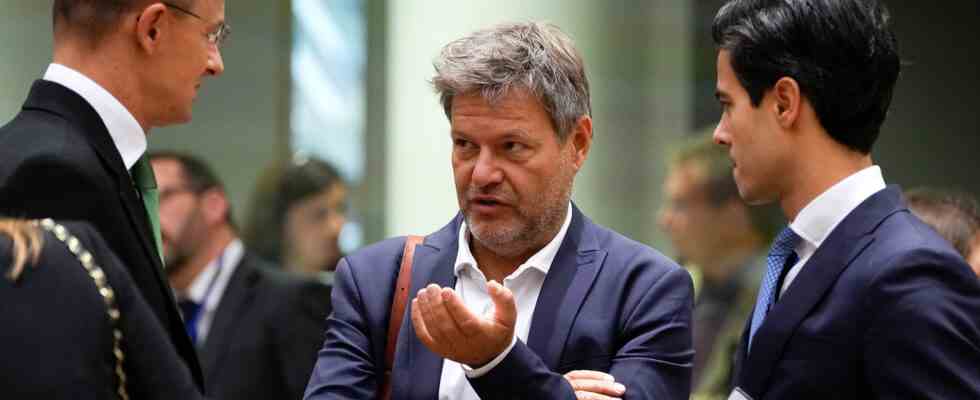Status: 09/30/2022 12:34 p.m
EU countries have agreed on an emergency package against the energy crisis. Excess profits from the electricity companies are to be skimmed off in order to finance relief for the citizens. A possible price cap for gas imports is also controversial.
After weeks of negotiations at EU level, the energy ministers of the 27 member states have agreed on an emergency package. At a crisis meeting, they agreed that energy companies would have to hand over part of their crisis profits to the state, as announced by the Czech EU Council Presidency. This money is intended to relieve consumers. The agreement has yet to be formally confirmed.
Income cap at 180 euros
Since the price of gas has risen sharply against the background of the war in Ukraine, electricity has also become more expensive. This is because the price of electricity is determined by the most expensive power plant that is switched on for production – currently these are mainly gas-fired power plants.
Producers of cheaper electricity – for example from the sun, wind, nuclear power or lignite – can sell it at high prices. In the future, your income will be capped at 180 euros per megawatt hour, as diplomats have confirmed. The surplus is intended to finance relief for citizens.
Solidarity levy on excess profits
EU Commission President Ursula von der Leyen originally assumed that the member states could skim off a total of 140 billion euros. However, since more flexibility is now to be allowed for national implementation, the exact yield cannot be quantified.
“Coincidence profits should be skimmed off”, Tobias Reckmann, ARD Brussels, on the meeting of the EU energy ministers
tagesschau24 11:00 a.m., 30.9.2022
The measures will affect not only the producers of cheap electricity from renewable and other sources, but also oil, coal and gas companies and refiners. They should pay a solidarity levy of at least 33 percent on their excess profits. The money should also be used to finance relief for citizens and companies.
Habeck: Rapid implementation
Germany had supported a revenue cap. Federal Economics Minister Robert Habeck said on the sidelines of the meeting that the federal government had prepared for this. Implementation can be relatively quick
The federal government had already announced a national gas price brake on Thursday to support customers with the massively increased bills. The federal government wants to take out up to 200 billion euros in loans for this.
Gas price cap is still pending
The EU representatives also approved a mandatory electricity saving target of five percent in times of high demand. Then electricity costs a lot because expensive gas has to be used for production. Overall, the EU countries should voluntarily reduce their electricity consumption by ten percent.
The ministers also wanted to discuss an EU-wide gas price cap, as demanded by more than half of the EU countries. There shouldn’t be a decision on that yet. Germany did not support the proposal made by Italy, France, Belgium and other countries and argued with security of supply. Habeck warned that one should not allow too little gas to come to Europe.
EU Energy Minister: First steps against high prices
Holger Beckmann, ARD Brussels, September 30, 2022 12:56 p.m

